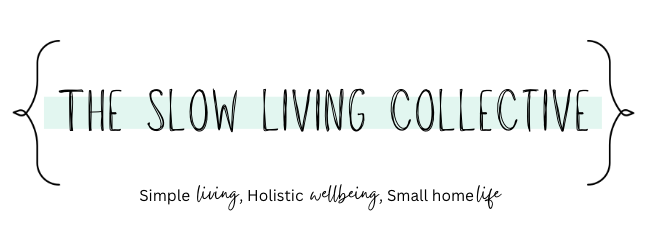Exploring the Intersection of Feminism and Anti-MLM Education: How Critiquing the MLM Industry is Challenging the Epitome of Hustle Culture.
Multi-Level Marketing (MLM) companies have been controversial for years, with many people criticising their business practices and ethics. Recently, a movement against MLMs has gained momentum, with individuals and organisations speaking out against the dangers and deception of these companies. However, some argue that the anti-MLM movement is anti-women, as MLMs often target and employ women as their primary sales force. We are going to explore this intersection of feminism and anti-MLM education, and how critiques of the MLM industry are challenging the epitome of hustle culture. We will discuss the harmful effects of MLMs, why they disproportionately affect women, and why the anti-MLM movement is not anti-women, but rather a pro-consumer and pro-empowerment movement.

You can check out Episode 41 – Is Anti MLM anti-women? – of The Slow Living Collective Podcast to hear me talk about my own experiences within Multi-level marketing, why hustle culture is a scourge on our society and mental wellbeing, and why being anti mlm is pro-women and not anti-women. Search for The Slow Living Collective podcast wherever you get your podcasts.
Listen on Apple Podcasts | Listen on Spotify Podcasts
As anti-MLM sentiment continues to grow on social media, some critics have accused the movement of being anti-women. These accusations have sparked heated debates online, with many arguing that MLMs disproportionately target and harm women. Others argue that anti-MLM education is counterproductive and does more harm than good. Today I want to explore the arguments on both sides and try to shed light on this controversial issue.
What is an MLM?
First, it’s important to understand what MLMs are and how they work. MLMs, or multi-level marketing companies, are businesses that recruit individuals to sell their products and recruit others to do the same. These companies often promote the idea of financial freedom and the ability to work from home, which can be appealing to stay-at-home mothers and other women looking for flexible work. However, the reality is that very few people actually make a significant income from MLMs, and the vast majority end up losing money. In fact, as per the FTC, 99.6% of people who enter into Multi level marketing will either not make or lose money. Meaning the “success” rate is just 0.4%.
One of the primary arguments against MLMs is that they prey on vulnerable women, promising them financial independence and the ability to work from home while taking care of their families. These promises can be especially appealing to women who face barriers to traditional employment, such as discrimination or lack of affordable childcare. However, the reality is that MLMs often require significant upfront investment and a relentless focus on recruiting others, leaving little time for actual selling or family time.
Is Anti MLM Anti-women?
Critics of anti-MLM education argue that these campaigns are anti-women because they discourage women from pursuing entrepreneurship and financial independence. They argue that MLMs provide a valuable opportunity for women to earn money and gain business experience, and that the anti-MLM movement unfairly targets women who are simply trying to make a living. Additionally, some argue that anti-MLM education is classist and elitist, as it assumes that women are not capable of making informed decisions about their own finances and business ventures. But what about this: what if we started to think about Anti MLM education as the warning sign that the industry so desperately needs? When only 0.4% of people will ever make money (and that doesn’t necessarily mean that they are earning a livable wage) the lived experiences of those who have seen Multi level marketing from the inside should not be as downplayed as it is. For years anti MLM activists have been accused of being “jealous” or “haters” or even people who “weren’t successful” in an attempt to drown out the words being repeatedly spoken by people who had seen these companies from the inside. Even when people who found financial success have spoken out those in Multi level marketing have done their best to discredit their words. Why? It’s all part of the questionable tactics used to keep members within this structure.
Proponents of anti-MLM education argue that MLMs are not a legitimate form of entrepreneurship and that they do more harm than good. They point to the fact that very few people actually make money from MLMs (remember: 99.6% of people will either not make or will lose money) and that the companies often use deceptive marketing tactics to recruit new members. Additionally, they argue that MLMs are often associated with cult-like behavior and can be emotionally and financially damaging to those involved.
A way that MLM reps draw you into their company throughout the recruitment process is by using the earning an extra income theory. They say that their company is a great way to supplement your income and you can use the business to cover bills, pay your car payment, retire yourself from your 9-5, that it is the same as starting your own business (it isn’t) and you can start your own journey to financial freedom. The truth is that for more than 99% of people this is all unattainable as per a study from the FTC. The business structure itself cannot support it. For the minority (the 0.4% who will turn a profit, not be necessarily making a lot of money but turning a profit and not loosing money) the 99.6% will be loosing. The average income of someone in an MLM company is £0. Let’s just sit with that for a moment.
Once you are in the company however, things look a little different. The tough love (which is usually top leaders yelling at people over video in the name of “getting fired up”) say that for the people who aren’t earning money yet this is part of business ownership and these things take time (they do in a traditional start up but that’s usually not what was promised to us in the recruitment process). You’re reminded that this is a business and you just need to work harder (gaslighting) and wait longer (designed to keep you in the MLM and not quit).
You are constantly reminded that this is normal for business owners – only you aren’t actually a small business owner when you’re an MLM rep, you’re an independent contractor for a billion dollar corporation.

They don’t hide the stats either
Most people in multi-level marketing aren’t making a profit, in fact, 99.6% are not making or losing money and the thing is, the companies themselves aren’t hiding this, the income disclosure statements are right there for everyone to see (except in FM World, who still after 15 years of business have no income disclosure statement – huge red flag). Across the multi level marketing industry as a whole, the average earnings of a distributor is £0.
Although these companies put this information right out there the manipulation tactics in these teams is so strong that you could smack people round the face with the income disclosure statement and the facts, and I include myself in this, and they will still be like “Well, my company is different”. But no company with a multi level marketing structure is any different, there might be some that are better or worse than others, but ultimately they are all predatory and unethical in their business model and practices.
How similar are MLM’s to cults?
Multi-level marketing (MLM) is known for its cult-like behavior, where members are often indoctrinated into a particular way of thinking and behaving. The MLM structure encourages members to recruit others into the business and promises them the potential to earn significant income through sales and recruitment commissions. The constant pressure to recruit new members and make sales can lead to a toxic environment, where members are pushed to prioritise the success of the MLM over their own well-being. The MLM industry has been criticized for exploiting vulnerable individuals and perpetuating a culture of greed and materialism. They often create a culture of exclusivity and push a narrative that their business opportunity is the only way to achieve financial success and freedom. Members are often indoctrinated with a particular set of beliefs and values, and dissenting voices are typically silenced or ostracized. This type of behavior is not only harmful to individuals, but it can also create a toxic environment that perpetuates harmful gender roles and stereotypes.
There is a lot of “fake it until you make it” philosophy within this structure. It was a lot of staying “plugged in” to the team pages, showing up to zooms, trainings, etc. There is also a lot of gaslighting in multi level marketing, telling people that their level of commitment to these things is what will see them success (it won’t) but phrases like you “show up to go up” and calling out the people who don’t show up.
Thanks for reading The Slow Living Collective! Subscribe for free to receive new posts and support my work.
The issue of whether anti-MLM education is anti-women is a complex one that requires a nuanced discussion. While some argue that MLMs provide a valuable opportunity for women to earn money and gain business experience, the reality is that very few people actually make a significant income from these companies (just that 0.4% and it’s questionable as to how many of this number are making a livable wage), and most end up losing money. Additionally, the deceptive marketing tactics used by MLMs can be harmful, and the emotional and financial toll on those involved can be significant.
Anti-MLM education is pro-women because it seeks to expose and challenge the systemic exploitation and manipulation of women within the MLM industry. MLMs often specifically target women by using language that promises financial empowerment, personal growth, and flexibility. However, these promises are rarely fulfilled, and many women end up losing money, time, and their self-esteem. Anti-MLM education empowers women by providing them with information about the predatory nature of MLMs and the tactics they use to manipulate vulnerable individuals. By highlighting the dangers of MLMs and advocating for financial literacy and empowerment, anti-MLM education is pro-women and supports their well-being and autonomy.
Ultimately, the decision to participate in an MLM is a personal one, but it is important to approach these opportunities with caution and to do thorough research before investing time and money. Overall though, if you want my opinion: It’s a no from me.
MLM Resources
FTC Resources on MLMs – https://www.consumer.ftc.gov/articles/multi-level-marketing-businesses-and-pyramid-schemes
FTC – 99% failure rate in MLM’s
Report a scam to the FTC – https://reportfraud.ftc.gov/
FCA Resources on schemes – https://www.fca.org.uk/scamsmart/get-rich-quick-scams
Action Fraud: Pyramid Scheme Fraud – https://www.actionfraud.police.uk/a-z-of-fraud/pyramid-scheme-fraud
How MLMs And Cults Use The Same Mind Control Techniques
How MLM’s use the BITE Model (a known cult tactic) – https://freedomofmind.com/multi-level-marketing-and-self-help-cult-groups-learn-the-warning-signs/
Disclaimer
Everything written & spoken here is for educational purposes and to spread awareness of my personal experience and opinion. My opinions don’t represent the company I partnered with, or any other network marketing or multi level marketing companies. They are my experiences and not facts.
Copyright Disclaimer under section 107 of the Copyright Act 1976, allowance is made for “fair use” for purposes such as criticism, comment, news reporting, teaching, scholarship, education and research. Fair use is a use permitted by copyright statute that might otherwise be infringing. Non-profit, educational or personal use tips the balance in favor of fair use.
